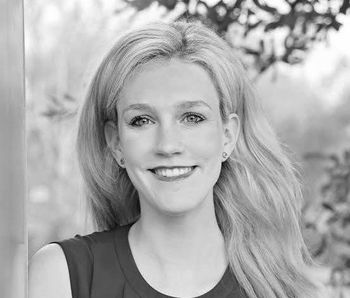American Library Association president says libraries, public schools need to be ‘sites of socialist organizing’
Emily Drabinski made the remarks at the world’s largest socialism conference held in September in Chicago, according to Borysenko’s reporting.
The presenters discussed how to incorporate Critical Race Theory (CRT) into the classroom, calling it 'fugitive pedagogy,' Borysenko reported.
The American Library Association (ALA) president said Sept. 2 at the Socialism 2023 Conference in Chicago that libraries and public schools need to be sites of socialist organizing.
Emily Drabinski, who also is an associate professor at Queens College, got in line at the microphone and introduced herself as a librarian during the question-and-answer part of a session called “Freedom to Learn: Black And Asian American Solidarity Against Attacks on Antiracist Education,” according to undercover journalist Karlyn Borysenko.
“I just want to say thank you for bringing up libraries and classroom libraries, but also school libraries of all kinds, public libraries and high educational libraries who have been under attack in similar ways,” Drabinski said, according to an audio recording captured and posted by Borysenko.
“I think your point that public education needs to be a site of socialist organizing,” Drabinski added. “I think libraries really do too ... I haven’t seen that working in libraries. But I think there’s real opportunity here to both connect with happening in public education, what’s happening in libraries, but also we need some help in the libraries. We need to be on the agenda of socialist organizing.”
The panel’s presenters, Wayne Au and Jesse Hagopian, had discussed how to incorporate Critical Race Theory (CRT) into the classroom, calling it “fugitive pedagogy,” according to Borysenko.
Boryseko told Campus Reform she has watched several webinars where Drabinski skirts around the issue of calling libraries “a site of socialist organizing.”
“She’s very smart about what she says publicly, and so to hear her to come right out and lay her agenda on the table is surprising, but not surprising within the context,” Borysenko told Campus Reform.
“In that environment, she was surrounded by socialist activists,” Borysenko told Campus Reform. “She was surrounded by her people, and she didn’t know she was being recorded. For her to say something like that in that type of environment makes complete sense because she thought she was going to have friends that weren’t going to release it to the media. But it was still pretty shocking to me to hear her so blatantly say that she does want libraries to be ‘a site of socialist organizing.’”
Several state libraries in Montana, Texas, Missouri, a local library in Midland, Texas, and another local library in Campbell County, Wyoming, announced this summer that they have left the ALA, the Associated Press reported.
Lawmakers in at least nine other states — Arizona, Georgia, Illinois, Louisiana, Mississippi, Pennsylvania, South Carolina, South Dakota and Wyoming — demand similar action, the AP reported.
[RELATED: VIDEO: Students support socialism...but not when it comes to their GPAs]
Lawmakers in these states have left or want to leave the ALA after Drabinski called herself a “Marxist” on X, formerly known as Twitter, in April 2022, and because of the ALA’s defense of books that have LGBTQ and racial themes targeted for censorship.
The claims that banning books featuring LGBTQ+ characters and people of color are at an all-time high and that new restrictions on K-12 school curricula has been disproven, according to The Daily Signal’s analysis of a PEN America report that claims 2,532 books were banned in the 2021 to 2022 school year.
”A more realistic description of the situation is that classic works of literature continue to be available in the libraries of virtually every school district while we have some disagreements over a limited number of graphic works,” according to The Daily Signal’s analysis. These works either contain images of people engaged in sex acts or graphic descriptions of those acts.
Books unable to be found in card catalogs were works like “Gender Queer,” “Flamer,” “Lawn Boy,” “Fun Home,” and “It’s Perfectly Normal: Changing Bodies, Growing Up, Sex, and Sexual Health” that either contain images of people engaged in sex acts or graphic descriptions of those acts.
Campus Reform contact the ALA and Drabinski for comment. This article will be updated accordingly.

